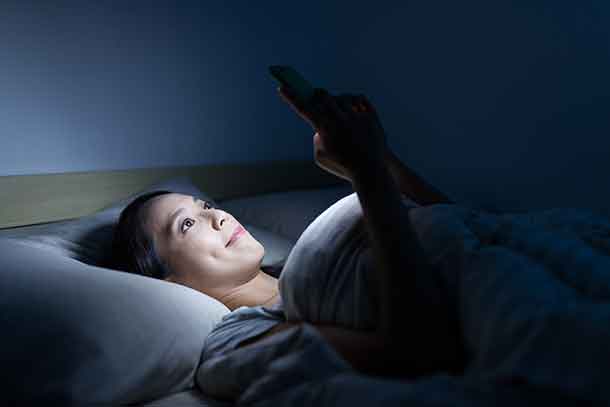Too much screen time is bad for your health. Several studies link excessive smartphone use and excessive social media use with higher rates of depression and loneliness. The Journal of Social and Clinical Psychology remarks that those who spend too much time glued to their phone and social media exhibit an overall “decreased well-being.”
These figures make it clear. It is best for your physical and mental health to cut back on your screen time as much as possible. Here are some of the best ways to do it.
Set Limits on Your Screen Time
In March 2019, device data use averaged 12 GB per day. In March 2020, that number climbed to 16.6 GB. That is an increase of 38% — a drastic leap in just one year. With data use climbing precipitously, it would be wise for all of us to be a bit more mindful of the time we spend staring at screens. How you limit screen time isn’t as important as actually doing it. Here are some ideas to get you started:
- Put down the phone during meals. One straightforward strategy is to put down your phone when you eat breakfast, lunch, and dinner. If you eat any of these meals with family, colleagues, or friends, encourage them to do the same. Try to eat the entire meal without picking up your phone.
- Stipulate phone-free rooms. Another way to limit your screen time is to designate rooms as phone-free zones. For example, to improve sleep and your mental health, keep phones out of your bedroom. Leave a charging cable or dock in the hallway outside your room. Plug your phone in before you enter your room, and leave it there.
- Time how long you spend on social media. While you may genuinely enjoy browsing Facebook, Twitter, Instagram, and other social media, it may surprise you to learn just how much time you spend on these apps. Decide on a reasonable amount of time to spend per day on Facebook or Twitter, set a timer, and scroll through social media only for this allotted period of time. What we assume is just 10 to 15 minutes on social media here and there is really closer to two hours and 30 minutes per day.
Practice Self-Care
Instead of wasting away your time in front of a smartphone, computer screen, or television screen, practice self-care. Self-care looks different for everyone. For some, self-care may entail journaling or starting each morning out on the porch with a cup of coffee or hot tea. It may be a long, hot bath, or a day pampering yourself at the salon or spa.
As of 2019, 6.97 million U.S. adults seek out professional waxing services at least four times every six months. Whether it is waxing, professional teeth whitening, or a new haircut, taking steps to improve your physical appearance and boost your confidence is absolutely a form of self-care.
Socialize In Person
As far as you are able, it is healthy for you to see your family and friends — and not in a Zoom meeting. As vaccine rollout continues, spending time with family and friends in person is good for your mental health. Take precautions. Meet outside and stay six feet apart — especially if someone in your party has not had the opportunity to get vaccinated. Wear masks in public spaces.
While times remain somewhat challenging for now, soon enough the large-scale rollout of the vaccine will mean planning that dinner party for 15. You will need 200 napkins, about 20 plates, 20 sets of silverware (it’s always best to have extra for unexpected guests and unforeseen events), and a can-do attitude.
During small- and medium-sized gatherings, keep your phone in your pocket and pick it up only for emergencies.
The National Institutes of Health (NIH) recommend significantly cutting back your screen time. Do it by setting limits, keeping your phone out of certain rooms, and spending screen-free time with friends one-on-one.

